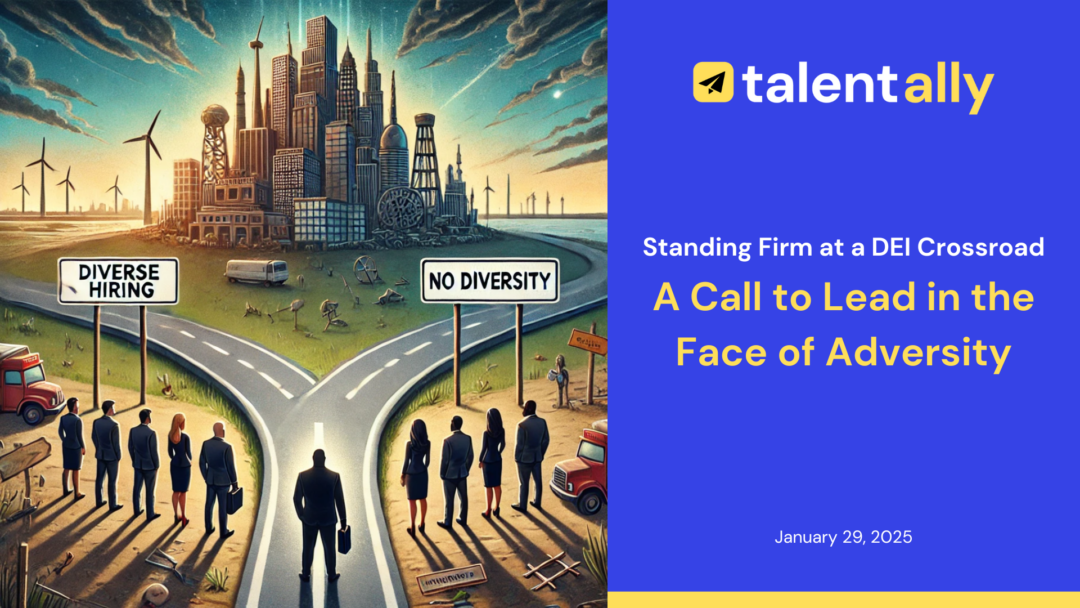In a time when divisive rhetoric challenges decades of progress made in workplace culture and opportunity, Diversity, Equity, and Inclusion (DEI) initiatives are a platform for innovation and profitability. Companies that champion DEI don’t just adapt to the changing workforce—they lead it. Yet, with anti-DEI sentiments rising in some circles, you face a pivotal question: will you choose progress or regression?
DEI goals, particularly those associated with talent acquisition, should not be viewed as a political statement – but a smart, data-driven business decision that expands applicant pools without taking away opportunities from anyone, reduces turnover, and improves the bottom line.
TalentAlly has compiled research-backed evidence to show why embracing a diverse talent acquisition strategy is good for business, why companies that do are 35% more likely to outperform competitors financially, and tangible steps that you can take.

Message from TalentAlly President, Russell Esquivel Jr.
“It is deeply disheartening to witness corporations dismantling the very diversity initiatives that were vital to their success. Many of these companies were trailblazers in the DEI space, working diligently to close critical gaps in areas like gender pay equity, recruitment biases, and the identification of high-potential, yet underrepresented employees. To now see these organizations bow to pressure from special interest groups or leverage the current economic climate to cut costs by retreating from investments in underserved communities—the very communities that are their customers—is both perplexing and troubling.
The term “DEI hire” has unfortunately become a misnomer, propagated by special interests with the aim of categorizing all DEI efforts as discriminatory. In reality, dismantling DEI programs and employee resource groups sends a damaging message: that companies are choosing to overlook the well-documented disparities and challenges that persist in today’s workforce. TalentAlly does not support the concept of a “DEI hire,” nor do the vast majority of DEI advocates. Hiring decisions should always be based on merit, organizational fit, and an unbiased process. However, the way companies recruit, promote job opportunities, and build diverse talent pipelines must be reimagined. Relying on the same, narrow talent pools repeatedly is not conducive to innovation or business growth.
Historically, many companies have failed to broaden their outreach to diverse talent pools, leading to the underrepresentation of various groups, especially in leadership roles. It was this very apathy toward diversity that gave rise to DEI programs in the first place. Eliminating these programs now will not reduce disparities; it will likely exacerbate discriminatory practices.
That’s why we strongly commend companies like Costco who recognize that their organization is stronger when employees feel accepted and valued for their unique backgrounds. They understands that diversity is a strategic asset—one that drives creativity, fosters innovation, and fuels growth. It is clear that diverse teams outperform homogeneous ones, bringing fresh perspectives that contribute to a thriving business environment.”
